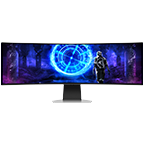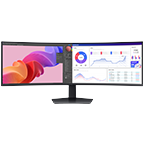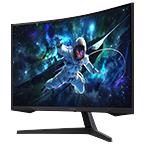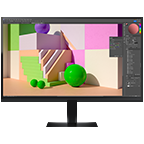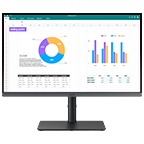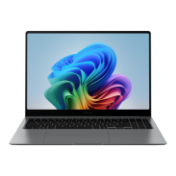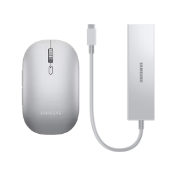Curved
Filters
Filters
-
1. What are the benefits of a curved monitor?Curved monitors provide an immersive experience and minimize peripheral distractions by offering a wide field of view and enhanced depth perception. This design also reduces eye strain, creating greater viewing comfort.
-
2. Curved vs Flat monitor: Which one should I choose?Choosing between a curved or flat monitor depends on your personal preferences and needs. Curved monitors are excellent for immersive experiences such as gaming and watching movies due to their wrap-around effect. Flat monitors, on the other hand, are great for general productivity tasks and can be easier to position in multi-monitor setups. Both types offer high-quality visuals, so consider your primary use case and space constraints when making a decision.
Still need help deciding which monitor to buy? Check out our monitor resolution guide to help you make an informed decision. -
3. Are curved monitors better for gaming?Yes, curved monitors can enhance your gaming experience when compared to flat monitors. The curvature provides an immersive viewing experience, making you feel more involved in the game. It also reduces eye strain during long gaming sessions and offers a more natural viewing angle, which can be particularly beneficial in fast-paced and expansive game environments.
Learn more about how to elevate your gaming experience with our gaming monitor buying guide. -
4. Are curved monitors better for work?Curved monitors can be advantageous for work, especially if you spend long hours in front of your screen. The curved design reduces eye strain and provides a more comfortable viewing experience. It's particularly beneficial for tasks that involve wide spreadsheets, multiple windows or detailed graphics because it helps keep all parts of the screen within your natural field of view.
-
5. How are curved monitors measured?Curved monitors are measured diagonally from one corner of the display to the opposite corner, just like flat monitors. However, they also have a curvature rating, such as 1000R or 1500R, which indicates the radius of the curve in millimeters. A smaller number means a more pronounced curve.
-
6. 1000r vs 1500r curved monitor: what's the difference?The difference between 1000R and 1500R monitors lies in the curvature. A 1000R monitor has a tighter curve, matching the natural field of view of the human eye more closely than a 1500R monitor. This means a 1000R monitor offers a more immersive experience, wrapping more around your field of view. The 1500R monitor has a gentler curve, which can still enhance viewing comfort and immersion, but to a slightly lesser degree compared to 1000R.
All specifications and descriptions provided herein may be different from the actual specifications and descriptions for the product. Samsung reserves the right to make changes to this document and the product described herein, at anytime, without obligation on Samsung to provide notification of such change.

